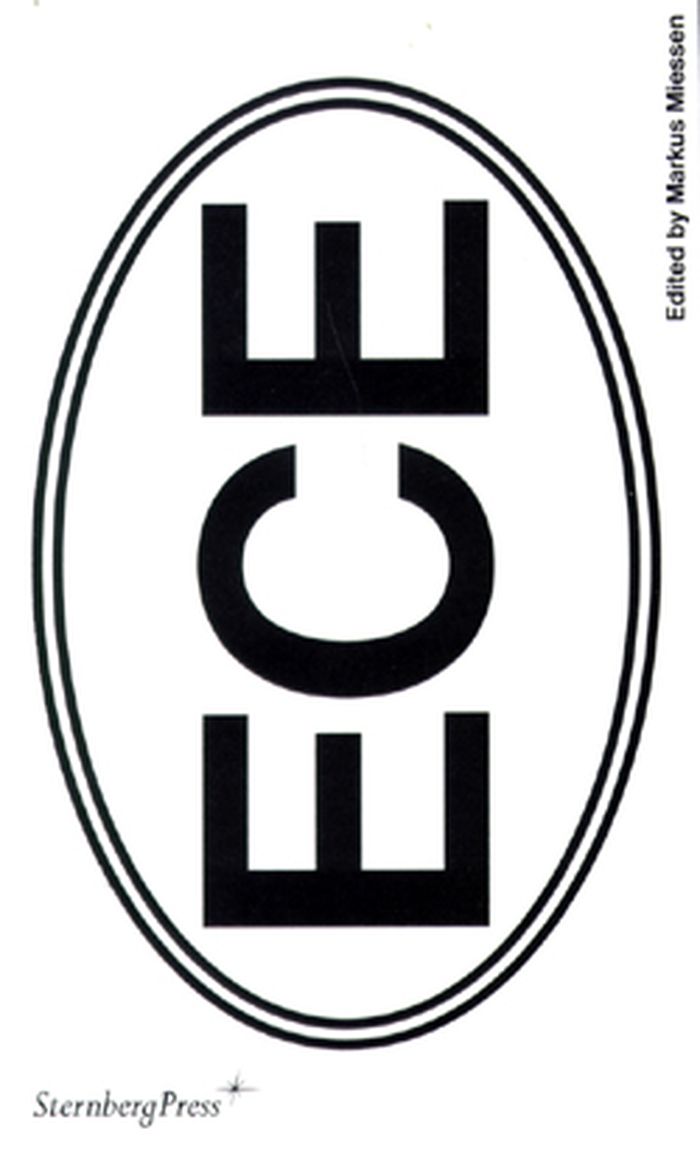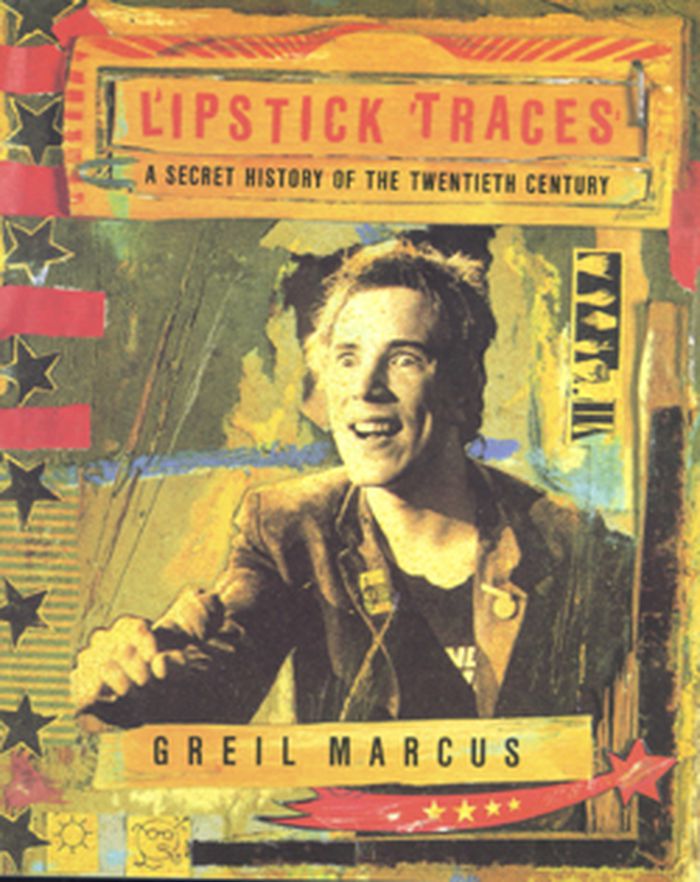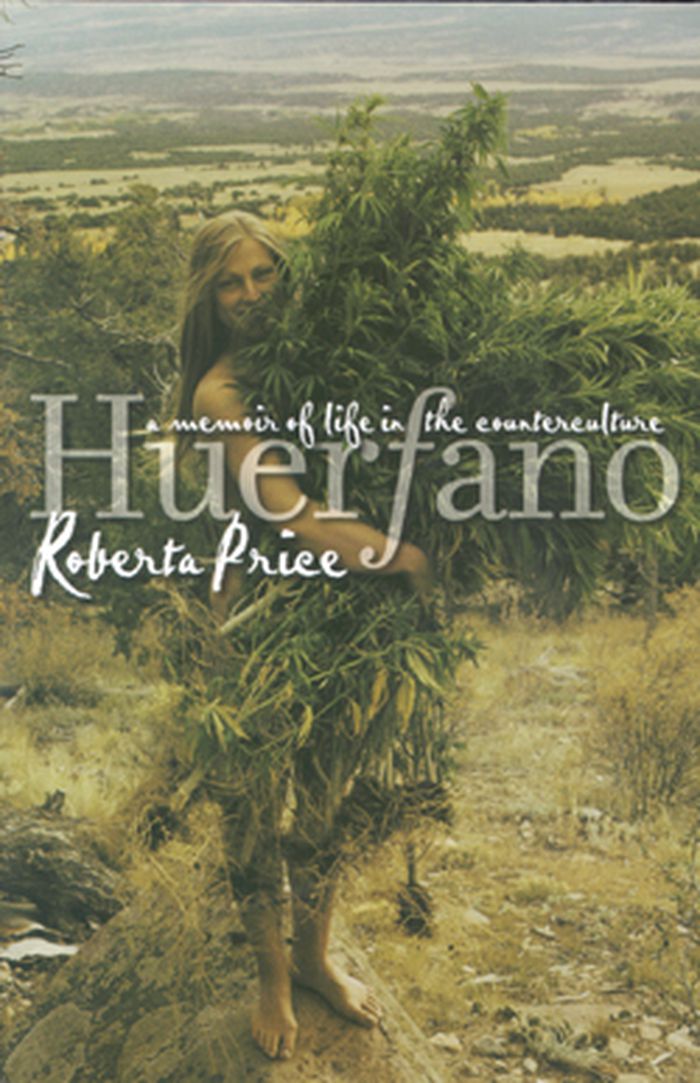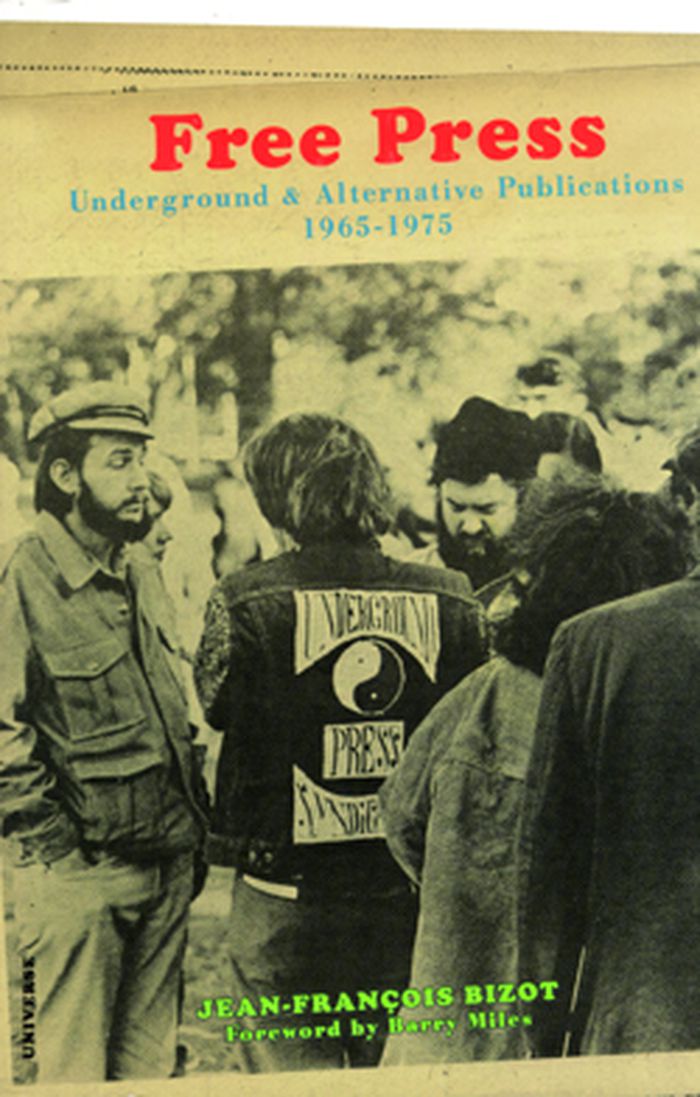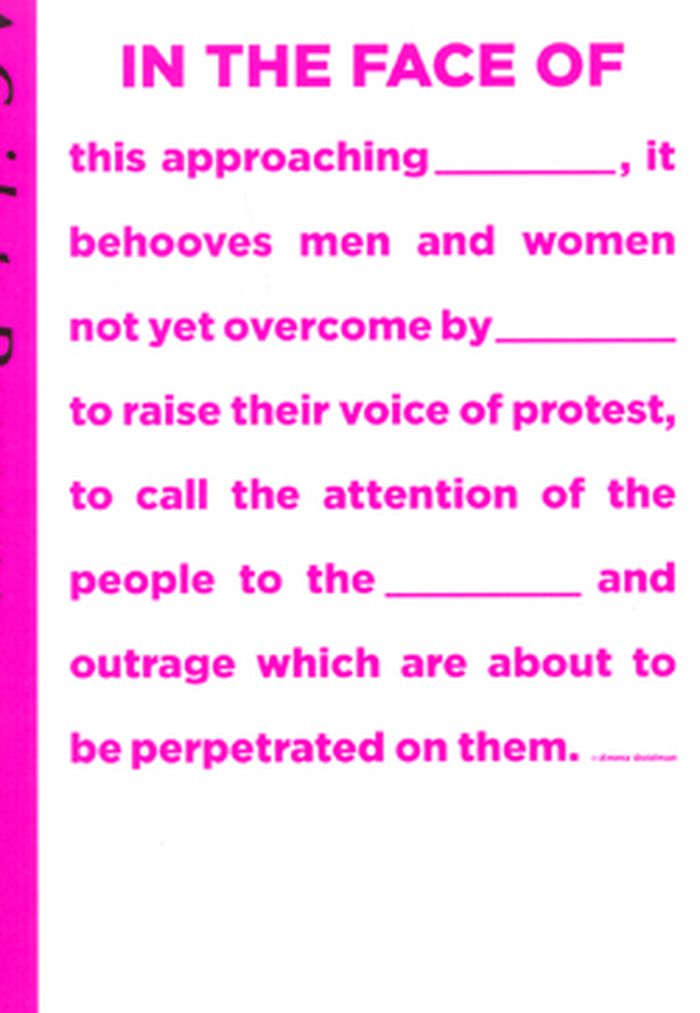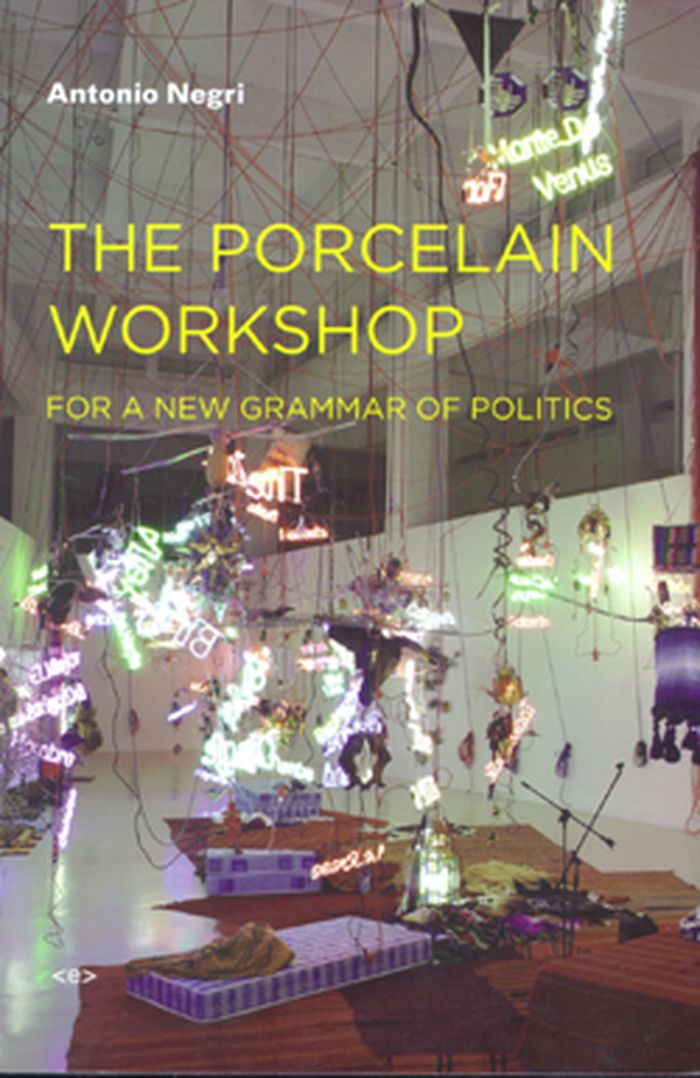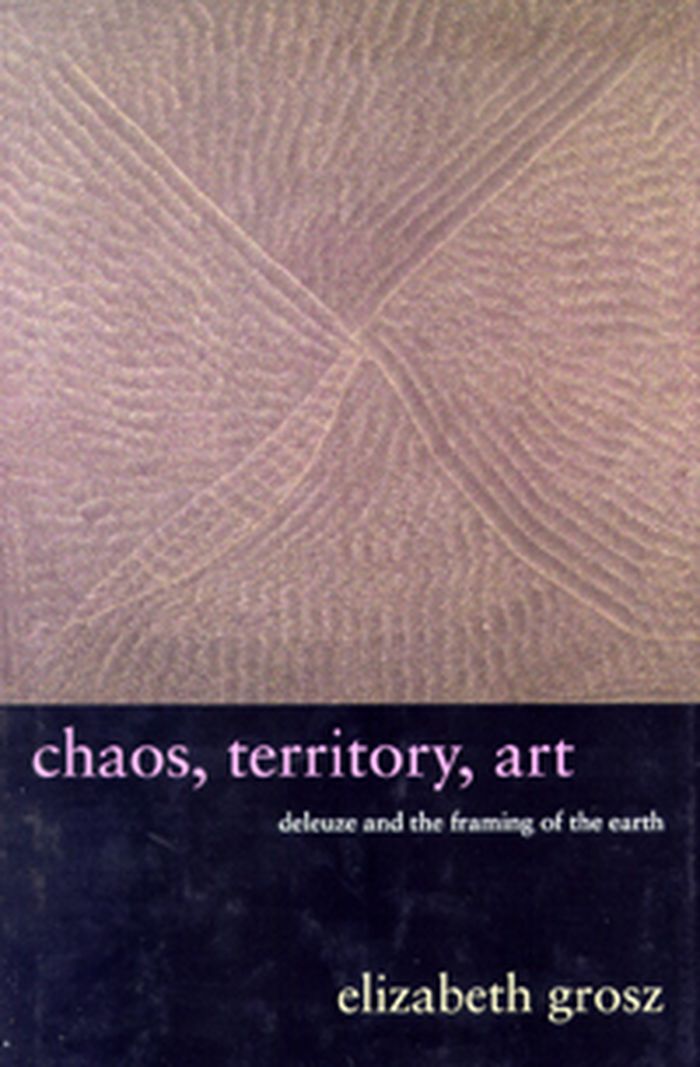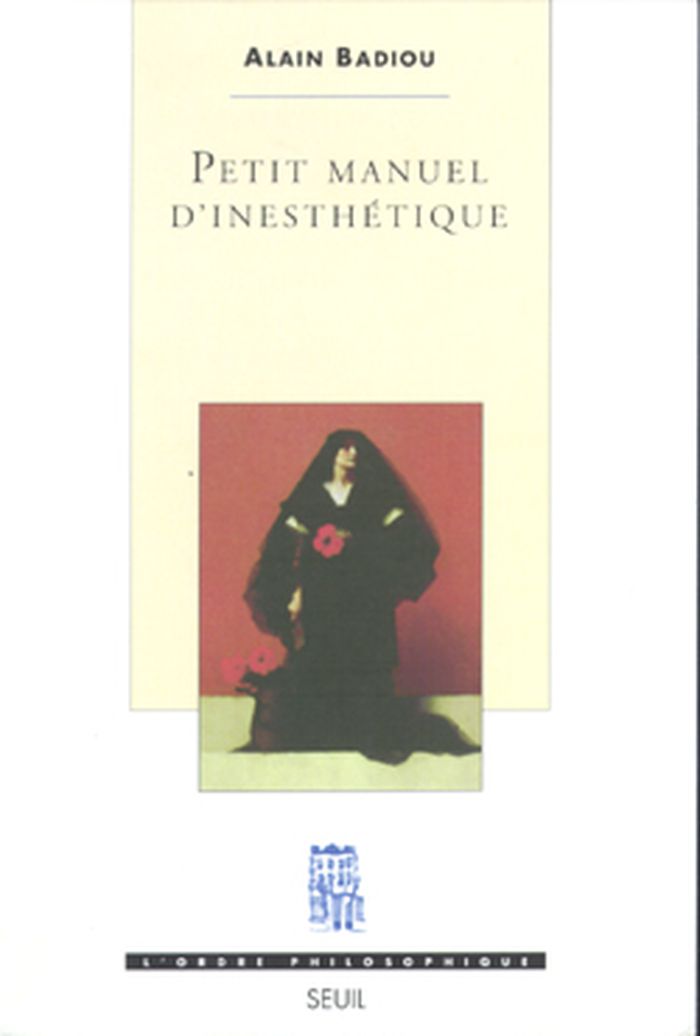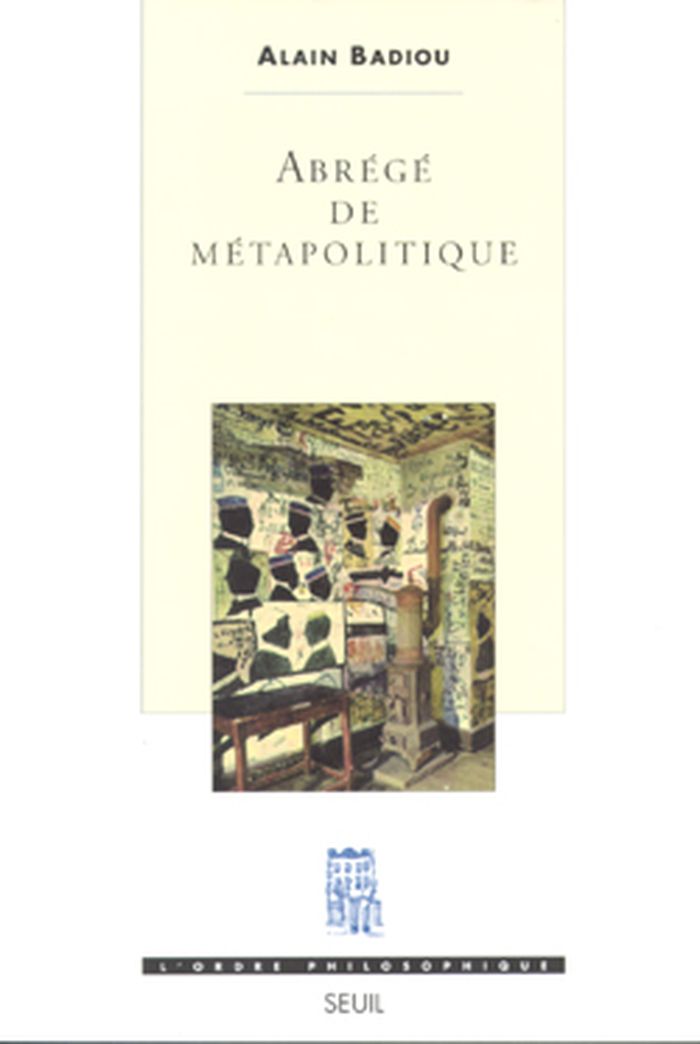East Coast Europe
$28.00
(disponible sur commande)
Résumé:
“East Coast Europe,” which took place during Spring 2008, is a project about the perceptions of contemporary European identity and its relation to spatial practices and international politics.
East Coast Europe
Actions:
Prix:
$28.00
(disponible sur commande)
Résumé:
“East Coast Europe,” which took place during Spring 2008, is a project about the perceptions of contemporary European identity and its relation to spatial practices and international politics.
Théorie/ philosophie
$31.00
(disponible sur commande)
Résumé:
Greil Marcus, author of Mystery Train, widely acclaimed as the best book ever written about America as seen through its music, began work on this new book out of a fascination with the Sex Pistols: that scandalous antimusical group, invented in London in 1975 and dead within two years, which sparked the emergence of the culture called punk. "I am an antichrist!" shouted(...)
Lipstick traces: a secret history of the twentieth century
Actions:
Prix:
$31.00
(disponible sur commande)
Résumé:
Greil Marcus, author of Mystery Train, widely acclaimed as the best book ever written about America as seen through its music, began work on this new book out of a fascination with the Sex Pistols: that scandalous antimusical group, invented in London in 1975 and dead within two years, which sparked the emergence of the culture called punk. "I am an antichrist!" shouted singer Johnny Rotten--where in the world of pop music did that come from? Looking for an answer, with a high sense
Théorie/ philosophie
$29.95
(disponible sur commande)
Résumé:
Winner of the 2006 Zia Award from the New Mexico Press Women With a strong, distinctive voice, Roberta Price recalls the years she spent in the Huerfano ("Orphan") Valley when it was a petrie dish of countercultural experiments. Documenting her story with photos as well as words, and placing it in the larger context of the times, she describes her participation in the(...)
Huerfano: a memoir of life in the counterculture
Actions:
Prix:
$29.95
(disponible sur commande)
Résumé:
Winner of the 2006 Zia Award from the New Mexico Press Women With a strong, distinctive voice, Roberta Price recalls the years she spent in the Huerfano ("Orphan") Valley when it was a petrie dish of countercultural experiments. Documenting her story with photos as well as words, and placing it in the larger context of the times, she describes her participation in the antiwar movement, the advent of the women's movement, and her encounters with such icons as Ken Kesey, Gary Snyder, Abbie Hoffman, Stewart Brand, Allen Ginsburg, and Baba Ram Dass.
Théorie/ philosophie
$40.00
(disponible sur commande)
Résumé:
This nostalgic tour-de-force celebrates the alternative news-papers that forever influenced culture, politics, and society. Taking the collective name from the wartime 'underground press' of Europe's anti-Nazi resistance, the rebellious countercultural publications examined here were all members of the Underground Press Syndicate (later renamed the Alternative Press(...)
Free press: underground & alternative publications 1965-1975
Actions:
Prix:
$40.00
(disponible sur commande)
Résumé:
This nostalgic tour-de-force celebrates the alternative news-papers that forever influenced culture, politics, and society. Taking the collective name from the wartime 'underground press' of Europe's anti-Nazi resistance, the rebellious countercultural publications examined here were all members of the Underground Press Syndicate (later renamed the Alternative Press Syndicate), which was founded in 1967 so that member papers could freely share material. This utopian model perfectly suited the times. The work of soon to be famous writers and artists such as Hunter S. Thompson, T. Coraghessan Boyle, Ken Kesey, T. Crumb, and Art Spiegelman was soon widely available from coast to coast.
Théorie/ philosophie
$17.00
(disponible sur commande)
Résumé:
This essential document gathers more than 100 provocative artists, cultural critics, and activists to reflect on the historical roots and current manifestations of democracy in the United States.
A guide to democracy in America
Actions:
Prix:
$17.00
(disponible sur commande)
Résumé:
This essential document gathers more than 100 provocative artists, cultural critics, and activists to reflect on the historical roots and current manifestations of democracy in the United States.
Théorie/ philosophie
$18.95
(disponible sur commande)
Résumé:
In 2004 and 2005, Antonio Negri held ten workshops at the Collège International de Philosophie in Paris to formulate a new political grammar of the postmodern. Postmodernity, Negri suggests, can be described as a "porcelain workshop": a delicate and fragile construction that could be destroyed through one clumsy act. Looking across twentieth century history, Negri warns(...)
The porcelain workshop: for a new grammar of politics
Actions:
Prix:
$18.95
(disponible sur commande)
Résumé:
In 2004 and 2005, Antonio Negri held ten workshops at the Collège International de Philosophie in Paris to formulate a new political grammar of the postmodern. Postmodernity, Negri suggests, can be described as a "porcelain workshop": a delicate and fragile construction that could be destroyed through one clumsy act. Looking across twentieth century history, Negri warns that our inability to anticipate future developments has already placed coming generations in serious jeopardy. Describing the years 1917-1968 as the "short century," Negri suggests that by the end of it, all of the familiar markers of modernity (including that of socialism) had lost their relevance. Confronted with an intolerable reality, indignation and the revolutionary will to transform the world have both taken new forms and must be understood anew, free of modernist assumptions. In the impassioned debates recounted in this book, Antonio Negri attempts to describe the formation of an alternative political horizon and looks for a way to define the practices and modes of expression that democracy could take.
Théorie/ philosophie
$29.50
(disponible sur commande)
Résumé:
Instead of treating art as a unique creation that requires reason and refined taste to appreciate, Elizabeth Grosz argues that art-especially architecture, music, and painting-is born from the disruptive forces of sexual selection. She approaches art as a form of erotic expression connecting sensory richness with primal desire, and in doing so, finds that the meaning of(...)
Chaos, territory, art, Deleuze and the framing of the earth
Actions:
Prix:
$29.50
(disponible sur commande)
Résumé:
Instead of treating art as a unique creation that requires reason and refined taste to appreciate, Elizabeth Grosz argues that art-especially architecture, music, and painting-is born from the disruptive forces of sexual selection. She approaches art as a form of erotic expression connecting sensory richness with primal desire, and in doing so, finds that the meaning of art comes from the intensities and sensations it inspires, not just its intention and aesthetic. By regarding our most cultured human accomplishments as the result of the excessive, nonfunctional forces of sexual attraction and seduction, Grosz encourages us to see art as a kind of bodily enhancement or mode of sensation enabling living bodies to experience and transform the universe. Art can be understood as a way for bodies to augment themselves and their capacity for perception and affection-a way to grow and evolve through sensation. Through this framework, which knits together the theories of Charles Darwin, Henri Bergson, Gilles Deleuze, FA(c)lix Guattari, and Jakob von UexkA1/4ll, we are able to grasp art's deep animal lineage. Grosz argues that art is not tied to the predictable and known but to new futures not contained in the present. Its animal affiliations ensure that art is intensely political and charged with the creation of new worlds and new forms of living. According to Grosz, art is the way in which life experiments with materiality, or nature, in order to bring about change.
Théorie/ philosophie
livres
$41.95
(disponible sur commande)
Résumé:
Notre temps est sans aucun doute celui de la disparition sans retour des dieux. Mais cette disparition relève de trois processus distincts, puisqu’il y a eu trois dieux capitaux : celui des religions, celui de la métaphysique et celui des poètes. Du dieu des religions, il faut seulement déclarer la mort. Le problème, qui est en dernière instance politique, est de parer(...)
Court traité d'ontologie transitoire
Actions:
Prix:
$41.95
(disponible sur commande)
Résumé:
Notre temps est sans aucun doute celui de la disparition sans retour des dieux. Mais cette disparition relève de trois processus distincts, puisqu’il y a eu trois dieux capitaux : celui des religions, celui de la métaphysique et celui des poètes. Du dieu des religions, il faut seulement déclarer la mort. Le problème, qui est en dernière instance politique, est de parer aux effets désastreux qu’entraîne toute subjectivation obscure de cette mort. Du dieu de la métaphysique, il faut achever le parcours par une pensée de l’infini qui en dissémine la ressource sur l’étendue entière des multiplicités quelconques. Du dieu de la poésie, il faut que le poème désencombre la langue, en y césurant le dispositif de la perte et du retour. Engagés dans la triple destitution des dieux, nous pouvons déjà dire, nous, habitants du séjour infini de la Terre, que tout est ici, toujours ici, et que la ressource de la pensée est dans la platitude égalitaire fermement avertie, fermement déclarée, de ce qui nous advient, ici.
livres
janvier 1998, Paris
Théorie/ philosophie
Petit Manuel d'inesthétique
$41.95
(disponible sur commande)
Résumé:
Didactisme, romantisme, classicisme sont les schèmes possibles du noeud entre art et philosophie, le tiers terme de ce noeud étant l'éducation des sujets, et singulièrement de la jeunesse. Or, ce qui caractérise à mon sens notre siècle finissant est que, tout en ayant éprouvé la saturation de ces trois schèmes, il n'en a pas introduit de nouveau. Ce qui tend à produire,(...)
Petit Manuel d'inesthétique
Actions:
Prix:
$41.95
(disponible sur commande)
Résumé:
Didactisme, romantisme, classicisme sont les schèmes possibles du noeud entre art et philosophie, le tiers terme de ce noeud étant l'éducation des sujets, et singulièrement de la jeunesse. Or, ce qui caractérise à mon sens notre siècle finissant est que, tout en ayant éprouvé la saturation de ces trois schèmes, il n'en a pas introduit de nouveau. Ce qui tend à produire, aujourd'hui, une sorte de dénouage des termes, un dé-rapport désespéré entre l'art et la philosophie, et la chute pure et simple de ce qui circulait entre eux: le thème éducatif De là découle la thèse autour de laquelle ce petit livre n'est qu'une série de variations: au regard d'une telle situation de saturation et de clôture, il faut tenter de proposer un nouveau schème, un quatrième mode de nouage entre philosophie et art. Détails sur le produit
Théorie/ philosophie
Abrégé de métapolitique
$41.95
(disponible sur commande)
Résumé:
Une exigence fondamentale de la pensée contemporaine est d'en finir avec la " philosophie politique ". Qu'est-ce que la philosophie politique? Son opération centrale est de ramener la politique à l'exercice du " libre jugement " et de la " discussion ", dans un espace public où ne comptent en définitive que les opinions. On sait que, bien avant d'être arendtien, ou(...)
Abrégé de métapolitique
Actions:
Prix:
$41.95
(disponible sur commande)
Résumé:
Une exigence fondamentale de la pensée contemporaine est d'en finir avec la " philosophie politique ". Qu'est-ce que la philosophie politique? Son opération centrale est de ramener la politique à l'exercice du " libre jugement " et de la " discussion ", dans un espace public où ne comptent en définitive que les opinions. On sait que, bien avant d'être arendtien, ou kantien, le thème de l'opposition irréductible de la vérité et de l'opinion est platonicien. Ce qui, en revanche, n'est pas platonicien est l'idée que la politique serait ainsi éternellement vouée à l'opinion, éternellement disjointe de toute vérité. Sauf pour qui pense que le commentaire de bistrot, ou la conversation entre amis, constitue " l'essence même de la vie politique ", il est en effet clair que le conflit des opinions n'est politique qu'autant qu'il se cristallise dans une décision. La question d'une possible vérité politique doit alors être examinée non du seul point de la " discussion ", mais dans le processus complexe qui noue la discussion à la décision.
Théorie/ philosophie
